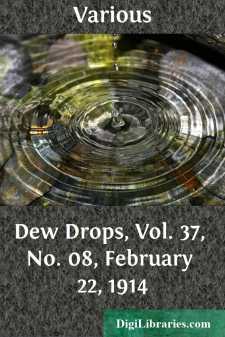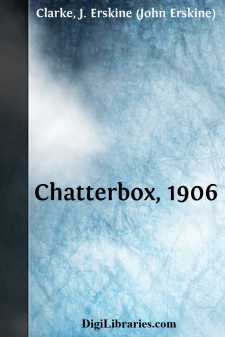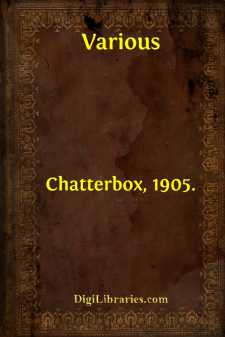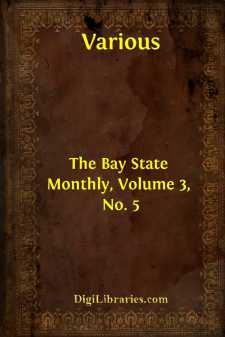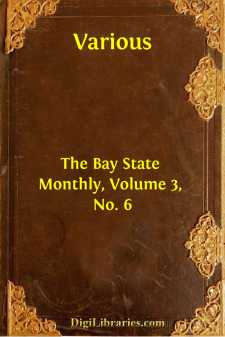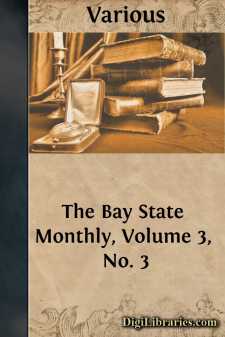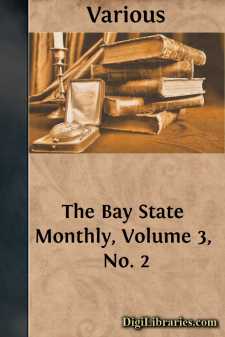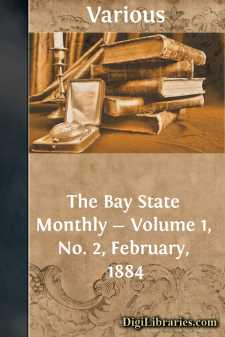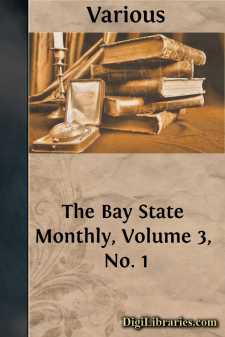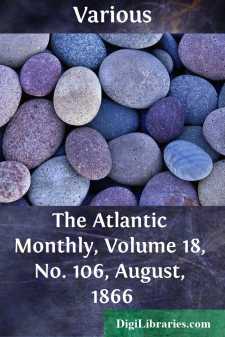Periodicals
- Art 27
- Children's periodicals 59
- Entertainment 5
- Food/Wine 2
- Games/Humor 455
- General 661
- Health 1
- History 53
- House/Home 1
- Regional 62
- Science/Nature 118
- Transportation 10
Periodicals Books
Sort by:
by:
Various
VOL. 37. NO. 8 WEEKLY.DAVID C. COOK PUBLISHING CO., ELGIN, ILLINOIS.GEORGE E. COOK. EDITOR.FEBRUARY 22, 1914. "We're all such little girls, Miss Lee. We can't do things for people. They have to do things for us, all the time, don't you see? How can we do much helping?" Little Grace Mayne looked into her teacher's face with earnest eyes as she said this. The girls in the class...
more...
I.—THE BROOKLYN SUSPENSION BRIDGE. HEN two large cities stand opposite to one another on the banks of a river, it is not likely they can do very well without a bridge to connect them. Yet the citizens of New York and Brooklyn were obliged to manage as best they could for a good many years before they had their bridge. There were many difficulties in the way. For one thing, the river is very broad;...
more...
by:
Various
PRESENCE OF MIND. A general had been very unfortunate in a battle, and his defeat so preyed on his mind that he lost his reason. He had to be kept confined in a room in his own house, and an attendant was always near to wait upon him, and to prevent him from doing harm. One day, an officer who had been paying him a friendly visit happened to leave his sword and scabbard in the general's room. As...
more...
by:
Various
HON. WILLIAM W. CRAPO. By Edward P. Guild. A citizen of Massachusetts, eminent in public and private life, and now in the prime of manhood, is the Hon. William W. Crapo, of New Bedford. He is the son of Henry Howland Crapo, a man of marked abilities and with a distinguished career, whose father was a farmer in humble circumstances in Dartmouth, the parent town of New Bedford, and able to give but...
more...
by:
Various
HENRY W. PAINE. By Prof. William Mathews, LL.D. Among the callings acknowledged to be not only useful, but indispensable to society, there is no one, except the medical, which has been oftener the butt of vulgar ridicule and abuse than the legal. "Lawyers and doctors," says a writer on Wit and Humor in the British Quarterly Review, "are the chief objects of ridicule in the jest-books of all...
more...
by:
Various
JOHN ALBION ANDREW. THE "WAR-GOVERNOR" OF MASSACHUSETTS. John Albion Andrew, the twenty-first Governor of Massachusetts, was born, May 31, 1818, at Windham, a small town near Portland, Maine. His father was Jonathan Andrew, who had established himself in Windham as a small trader; his mother was Nancy Green Pierce, of New Hampshire, who was a teacher in the celebrated academy at Fryeburg, where...
more...
by:
Various
SYLVESTER MARSH. [THE PROJECTOR OF THE MOUNT WASHINGTON RAILROAD.] By Charles Carleton Coffin. There were few settlers in the Pemigewasset Valley when John Marsh of East Haddam, Connecticut, at the close of the last century, with his wife, Mehitable Percival Marsh, travelling up the valley of the Merrimack, selected the town of Campton, New Hampshire, as their future home. It was a humble home. Around...
more...
by:
Various
Hon. ALEXANDER HAMILTON RICE, LL.D. By Daniel B. Hagar, Ph.D. [Principal of the State Normal School, Salem.] Massachusetts merchants have been among the most prominent men in the nation through all periods of its history. From the days of John Hancock down to the present time they have often been called by their fellow-citizens to discharge the duties of the highest public offices. Hancock was the...
more...
by:
Various
CHARLES CARLETON COFFIN. Among the emigrants from England to the western world in the great Puritan exodus was Joanna Thember Coffin, widow, and her son Tristram, and her two daughters, Mary and Eunice. Their home was in Brixton, two miles from Plymouth, in Devonshire. Tristram was entering manhood's prime—thirty-three years of age. He had a family of five children. Quite likely the political...
more...
by:
Various
HOW MY NEW ACQUAINTANCES SPIN. The strictly professional man may have overcome his natural aversion to some of the most interesting objects of his study, such as snakes, and toads, and spiders, and vermin of all kinds; but people in general have always required that any attempt to force such abominations upon their notice should be preceded by a more or less elaborate and humble acknowledgment of their...
more...


